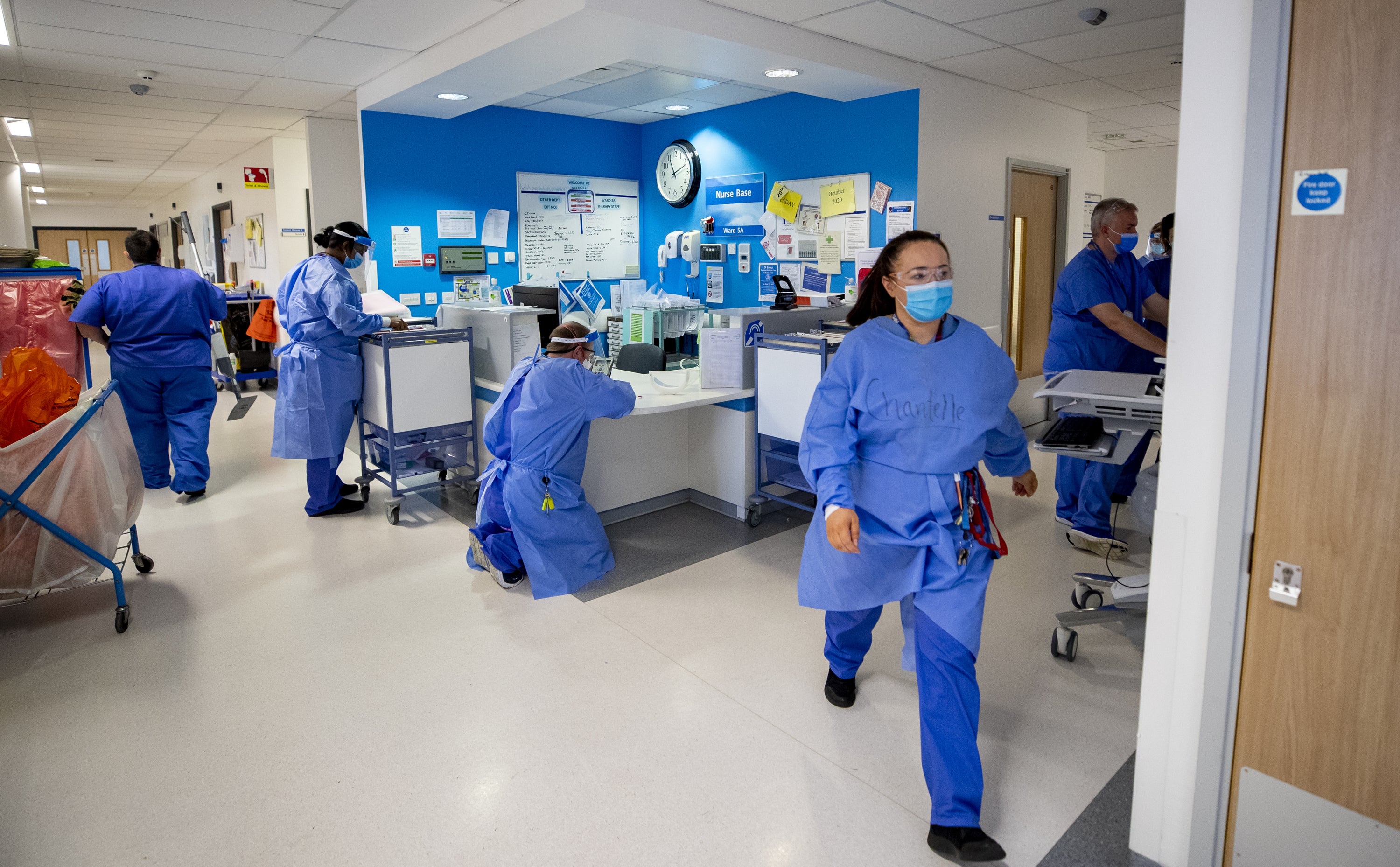MPs call for radical overhaul of NHS compensation system
Last year, the NHS compensation bill reached £2.17bn.

Your support helps us to tell the story
From reproductive rights to climate change to Big Tech, The Independent is on the ground when the story is developing. Whether it's investigating the financials of Elon Musk's pro-Trump PAC or producing our latest documentary, 'The A Word', which shines a light on the American women fighting for reproductive rights, we know how important it is to parse out the facts from the messaging.
At such a critical moment in US history, we need reporters on the ground. Your donation allows us to keep sending journalists to speak to both sides of the story.
The Independent is trusted by Americans across the entire political spectrum. And unlike many other quality news outlets, we choose not to lock Americans out of our reporting and analysis with paywalls. We believe quality journalism should be available to everyone, paid for by those who can afford it.
Your support makes all the difference.The NHS compensation system, which costs more than £2 billion a year, needs a radical overhaul, MPs have said.
The Health and Social Care Committee said the current system for compensating patients who suffer harm in England is “not fit for purpose” as it set out new measures for faster payments while reducing costs to the health service.
MPs said the focus needs to shift from a blame culture on individual medics to one where system-wide failures are recognised and lessons are learned.
They said the current system for families is most often “slow, adversarial, stressful, and often bitter”.
A decade ago, the NHS paid £900 million in damages but last year the bill was £2.17 billion – equivalent to the annual running costs of the biggest hospital trust in England or four average-sized hospitals.
This cost is predicted to double over the next decade to £4.6 billion, with a quarter of this money going to lawyers, the committee said.
On top of what is paid, the NHS is incurring around four times that amount in future liabilities – £8.3 billion in 2021/22 alone.
In a new report, the committee said the current system is focused on clinical negligence which, by definition, seeks out individual failings and is adversarial.
“In other countries, gains are made by careful system-wide analysis rather than an insistent search for individual error,” the study said.
We urgently need a system where the biggest priority is the prevention of future harm
“We urgently need a system where the biggest priority is the prevention of future harm.
“This system should review the facts and circumstances of a case and compensate patients not on the basis of whether there was clinical negligence, but when there has been medical error or best practice was not followed.
“Any investigation should prioritise the identification of system changes that can be disseminated across the NHS to prevent mistakes from being repeated.”
The MPs called for an independent administrative body to be made responsible for investigating cases and determining eligibility for compensation in the most serious cases.
While scrapping the need to prove clinical negligence will increase the number of people entitled to compensation, “the evidence from countries that have adopted such an approach is that overall costs will be lower not higher”, they added.
Under the current system, patients have to fight for compensation, often a bitter, slow and stressful experience, with a quarter of the enormous taxpayer-funded sums ending up in the pockets of lawyers
Compensation should also be based on the cost of care to top up what can be provided by the NHS or social care rather than the current “outdated assumption” that all care will be provided privately.
The current link to supposed future earnings should also be scrapped for children under 18, MPs said. The current system is unfair and means “the child of a cleaner receives less compensation than the child of a banker”.
Before any court case, there should be compulsory use of alternative dispute resolution mechanisms (ADRs), though people will still have the right to pursue legal routes if they wish.
Furthermore, lifetime payouts should be axed and replaced with initial compensation “within weeks of a claim”, with future payments adapted to meet the individual child’s requirements as they grow and develop.
We need a better system that learns from mistakes
Tory MP and former health secretary Jeremy Hunt, who chairs the committee, said: “The system of compensating patients for negligence in the NHS is long overdue for reform.
“We’re urging the Government to adopt our recommendations to reduce both the number of tragedies and the soaring costs to the NHS.
“Under the current system, patients have to fight for compensation, often a bitter, slow and stressful experience, with a quarter of the enormous taxpayer-funded sums ending up in the pockets of lawyers.
“We need a better system that learns from mistakes, following the lead of countries like New Zealand and Sweden. We must move away from a culture of blame to one that puts the prevention of future harms at its core.”
A Government spokesperson said: “The rising cost of clinical negligence is unsustainable and puts added pressure on public resources, which is why we are working across Government to address this and will consult on the issue.
“We recently consulted on proposals to tackle disproportionately high legal fees for lower value clinical negligence claims and NHS Resolution is working to resolve claims more quickly, with better value for money.
“Patient safety is a top priority and we are continuing to take action to improve safety, training and learning.”